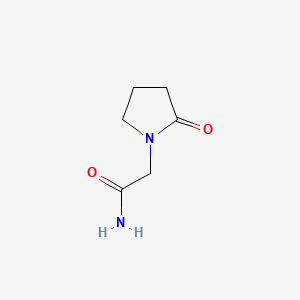|
Name: Nootropics
Type: Cognitive Enhancers
AKA: Smart drugs, cognitive enhancers

|
|
II. Natural Derivative
Synthetic substance, no natural derivative

|
|
III. Chemical Profile (IUPAC name)
Example: Piracetam
2-(2-oxopyrrolidin-1-yl)acetamide 
|
|
IV. History
Nootropics, or smart drugs, emerged in the 1970s with the development of piracetam. These substances are studied for their potential to enhance cognitive function. Over the years, research has expanded to various compounds, and nootropics are used in both clinical settings and by individuals seeking cognitive enhancement.

|
|
V. Legal Information
Nootropics, or smart drugs, are substances that claim to improve cognitive function. Their legal status varies, with some regulated as controlled substances depending on their specific effects and potential for abuse.
|
|
VI. Physical Effects
Nootropics are substances that enhance cognitive function and mental performance. As an upper, they improve memory, focus, and learning. Short-term effects include improved cognitive abilities, while long-term use is generally safe with minimal risks. Overdose risks are minimal but may include digestive issues. Safe dosing varies, and recent research highlights their effectiveness and benefits for cognitive health.  |
|
VII. Psychological Effects
Nootropics, cognitive enhancers, influence neurotransmitter systems to improve cognition and mood. Immediate effects include enhanced focus and memory, with varying duration depending on the substance. Long-term use is generally considered safe but may lead to psychological dependence or mild cognitive changes. Research is ongoing into their efficacy and long-term psychological impacts.
 |
|
VIII. Culture
Nootropics, or smart drugs, are substances used to enhance cognitive function. They gained popularity in the late 20th century and are discussed in the context of productivity and academic performance. Their cultural impact involves debates over their efficacy and ethical considerations. Proponents argue for their benefits in cognitive enhancement, while opponents raise concerns about long-term effects and fairness. Their use spans both recreational and professional settings, reflecting ongoing interest in cognitive enhancement.
 |
